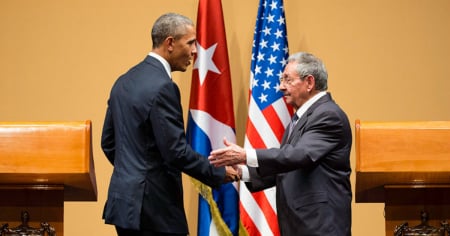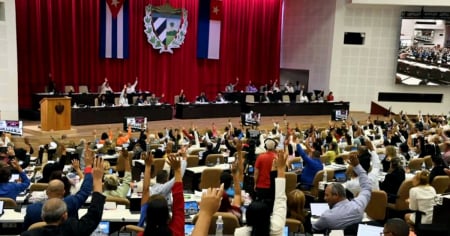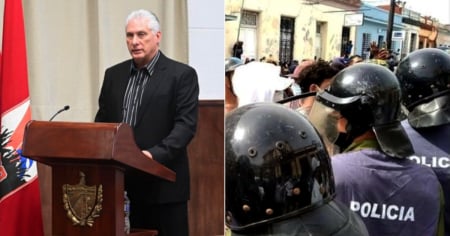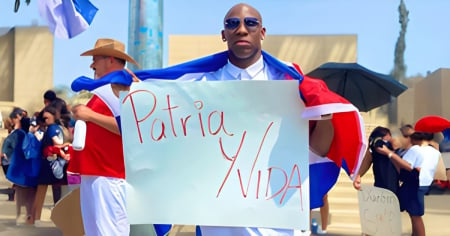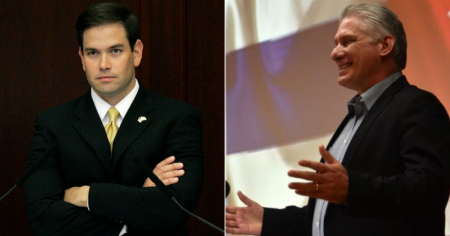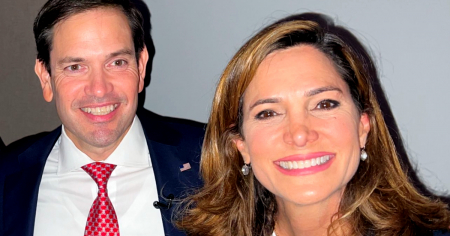A decade after the "thaw" initiated by Obama and following the recent call for the "March of the Combative People" announced by Díaz-Canel, U.S. Deputy Secretary of State Brian Nichols clarified to the leader that the only solution for Cuba continues to be "democracy."
In a recent interview with journalist Mario J. Pentón, Nichols reflected on the past ten years in Cuba and concluded that no significant reforms were implemented following the restoration of diplomatic relations.
Nichols believes that the Cuban regime squandered the opportunity to implement democratic changes following the historic diplomatic rapprochement that began in December 2014.
"The restoration of diplomatic relations under the Obama administration was an important step toward improving the lives of Cuban citizens and addressing issues such as the lack of democracy on the island... However, the reforms we would have liked to see in Cuba did not occur," he pointed out.
Nichols recalled that during and after the negotiations that led to the "thaw," the regime intensified its repression.
"In 2021, we witnessed a wave of repression that astonished the world, a significant setback for the well-being of the Cuban people and the international community. It was a lost opportunity on the part of the regime," he lamented.
Humanitarian crisis and hunger in Cuba
The undersecretary emphasized that not only has repression increased, but the situation on the island has also worsened significantly in recent years, driving the population into extreme conditions of misery and hunger.
"There is hunger, perhaps not a famine, but there is certainly a lot of hunger in Cuba," stated the senior U.S. official.
The American politician argued that, in a similar context, the United States should strive to support the private sector through changes in economic regulations aimed at enhancing the well-being of ordinary citizens.
In May, the Office of Foreign Assets Control (OFAC) of the Department of the Treasury announced measures aimed at supporting entrepreneurs in Cuba's independent private sector.
These include the opening of bank accounts in the United States for Cuban citizens not affiliated with the Communist Party, as well as the authorization of U-turn transactions, which had been eliminated in 2019.
Additionally, services on digital platforms such as videoconferencing, online gaming, and e-learning were approved, with the aim of “assisting the Cuban people, including entrepreneurs from the independent private sector.”
This approach aims to promote independent economic activity, although the regime continues to impose obstacles that hinder the development of the private sector on the island.
However, the Undersecretary of State believes that the recurring restrictions imposed by the government, such as the recent ban on wholesale trade without the involvement of state-run companies, hinder the management of entrepreneurs.
Democracy as the only solution
For Nichols, therefore, the solution to the Cuban crisis lies in the establishment of democracy.
"The solution to the problems currently facing Cuba is democracy and an expansion of freedoms," he stated, adding that political openness would allow for greater economic growth.
"You cannot treat the symptoms, such as blackouts, without addressing the underlying disease: the lack of democracy in Cuba," he concluded.
In the meantime, completely unaware of what the word "democracy" entails, the Cuban leader Miguel Díaz-Canel reiterated in a post on X this Tuesday the holding of a “March of the Combatant People” on December 20.
Frequently asked questions about the U.S. response to the march called by Díaz-Canel
What is the United States' opinion on the political situation in Cuba after a decade of "thawing"?
The United States believes that the situation in Cuba, despite the diplomatic efforts initiated with the "thaw" a decade ago, represents a "missed opportunity." Under Secretary of State Brian Nichols stated that no significant reforms in human rights or democratization have taken place in the country, and that the regime has intensified its repression.
What is the position of the U.S. on the recent economic measures adopted by the Cuban government?
The United States criticizes the new regulations affecting micro, small, and medium-sized enterprises in Cuba, arguing that these measures will worsen the economic and social crisis. Brian Nichols emphasized that these policies limit opportunities for independent entrepreneurs in Cuba and will exacerbate food insecurity.
What efforts is the United States making to support the Cuban private sector?
The United States is implementing changes to economic regulations to support Cuba's independent private sector. This includes the opening of bank accounts in the U.S. for Cuban citizens not affiliated with the Communist Party, authorizations for U-turn transactions, and access to digital platform services such as video conferencing and e-learning.
What is the solution proposed by the U.S. to resolve the crisis in Cuba?
Under Secretary of State Brian Nichols emphasized that democracy is the only solution to the problems in Cuba. Nichols argues that political openness would lead to greater economic growth and that the crisis cannot be addressed merely by treating the symptoms, but rather by tackling the root of the issue: the lack of democracy.
Filed under:

